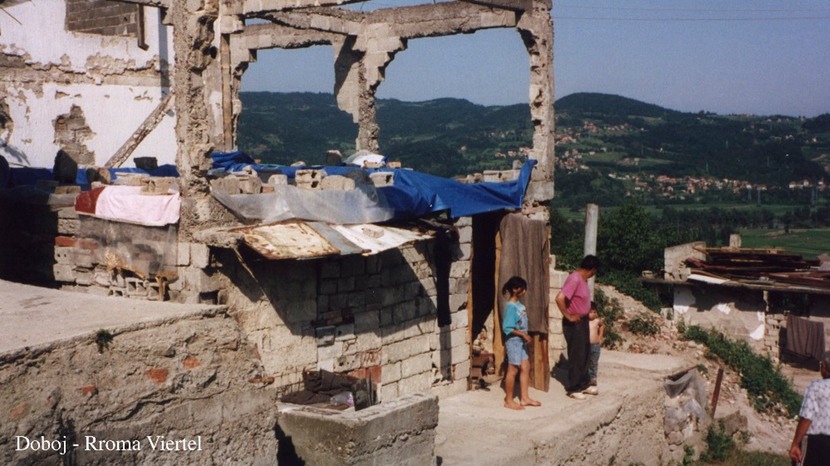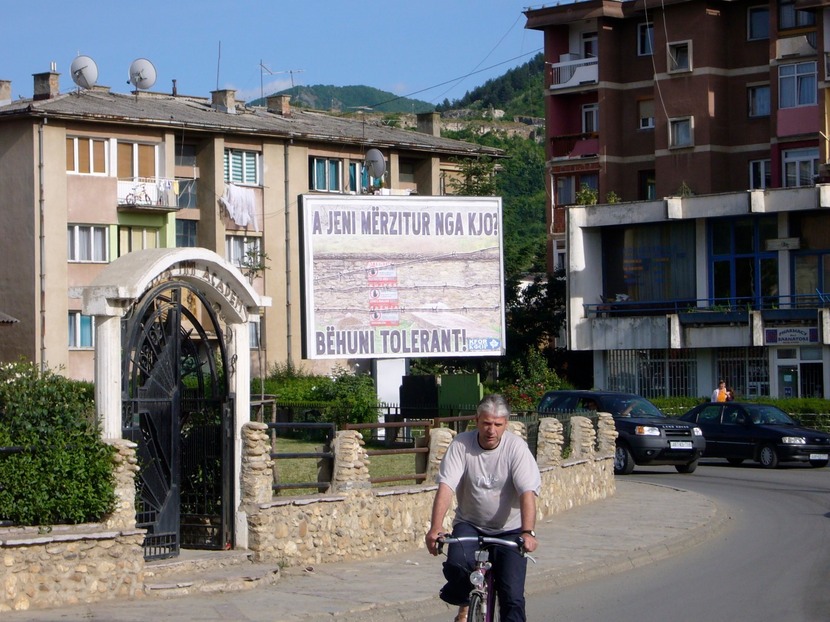Between 1989 and 1991, communism fell all over Eastern Europe. Democracy appeared, led by people who were for the most part previously communists. The Roma had to face new difficult problems. Work being the biggest one.
Roma lost their jobs when large state factories and state farms closed,. Many people were (and are) unemployed, not only Roma, but theirs is a difficult situation since many were poorly qualified.
This period also saw the rise of political extremism, nationalism and chauvinism and most of all, hate towards foreigners. Anti-Roma attitudes are on the rise in the previously communist states. Roma are beaten up or even murdered, their houses burnt down. These events happen all over Eastern Europe, from Russia and Poland through the Czech and Slovak republics, Hungary, Romania, and Bulgaria.
Economic Woes
The combination of the loss of jobs, increased anti-Roma racism, and poor education effectively left the Roma out of the post communist boom in Eastern Europe. Many have been unemployed since the fall of communism, and have lived from social care handed out by the state.

This unemployment and poverty, especially in the Carpathian region, together with an increased segregation within the communities, and with poor education has de-facto cut off many Roma in central Europe from working life, and this for several generations.
The difficult economic situation, together with the racism and anti-Roma acts, led many Roma to flee to Western European countries. Many Romanian, Czech, Slovak and Bulgarian Roma arrived in Germany, Switzerland and other rich Western countries.
Most of them were (and are) illegal immigrants or refugees. They were looking for something to do, work, for a way of living but many of them did not find a better life than the one they had left.
Country Partitions
The Roma in Eastern Europe faced another hard problem. In the Czech and Slovak republics, in the Baltic states, the authorities did not want to grant Roma the new citizenship. The situation in the ex-Czechoslovakia was the worst one. The Second World War saw all Czech Roma deported and killed in concentration camps. To replace them, Slovak Roma moved to work as unskilled labourers in the big Czech factories leaving the Roma unemployed after their closure.
At the partition, the Czech authorities do not grant Roma the Czech citizenship, claiming them to be Slovaks. But the new Slovak republic proved unwilling to take them back, they had no citizenship. This resolved itself after a few years.
Ethnic Cleansing
The break-up of Yugoslavia saw the worst abuses against Roma, especially in Bosnia and in Kosovo. There, all parties involved engaged themselves in ethnic cleansing against Roma, leading to a almost total vanishing of these Roma communities, some of them over a thousand years old.
Bosnia
The Bosnian War with its nationalism proved nearly fatal to Roma in Bosnia. Roma found no place among the three main “ethnic” groups of Bosniaks, Croats, and Serbs. One should note that this division is largely a religious one and not an ethnic one. Roma settlements were destroyed by all parties and Roma were forced to flee, within the country and also further.

While no longer forced to flee, Roma has still no place in a state defined along ethnic lines.
Kosovo
In contrast to Bosnia, the situation in Kosovo was totally different. Roma were well integrated in the social fabric, effectively being part of the middle class, especially in cities like Prizren. The autochthonous Roma, the Arlii and Bugurdži, as well as groups such as the Egyptians and the Ashkali, Roma who have largely lost their Romanes, sided with the Albanians. Only some Gurbeti, originally Vlach Roma, sided with the Serbs.
As such, many Roma lost their jobs, together with the Albanians when Milosevic tried to ensure the Serbian hold on Kosovo. Many fled together with Albanians at that time. Many Roma supported the Albanian UCK when the war started, and were shocked, when, after the Nato intervention, they were expelled from Kosovo and their property seized.

Today, there are all but a fraction of the original Roma in Kosovo. Most fled and have settled elsewhere, with many of them living in Switzerland and Germany.
Another Form of Ethnic Cleansing
A more pernicious form of ethnic cleansing has been put in place in many countries. According to authorities, Roma settlements are simply illegal, as they have never been formally registered. Houses have no building permits, streets do not exist. This allows the authorities to destroy “illegal buildings” without officially doing ethnic cleansing.
This method has been used everywhere but has been prevalent in Bulgaria, even though settlements there are documented since a long time.
Nationalism and Populism
The rise of populist and nationalistic parties since the early 1990’s has been spectacular. To name but a few: AfD in Germany; Front National (Now Rassemblement National) in France; Lega in Italy; Jobbik and other in Hungary, even Orban’s Fides; Kotleba’s party in Slovakia; and so on.
All these parties agree on one thing: Roma are not Europeans and are a nuisance. They only steal and beg, and something need to be done about them. This propaganda has already had very negative consequences. Roma were killed, as in Hungary, beaten up in many countries, and the attitudes of the general population have definitively turned against Roma.
Racism
To think the racism is mostly concentrated in Eastern Europe is a fallacy. Institutional racism against Roma is prevalent in every European Country. The police, the social services, the administration, are all biased against Roma. The list of example is almost infinite. Racism against Roma is still not recognised as such and many statements made about them would be simply not acceptable if they were made about any other minority.
Ukraine War
This year, Russia invaded the Ukraine. This has not been good for Roma either. Many had to flee and many were confronted to racism. Read our report on Roma in the Ukraine.